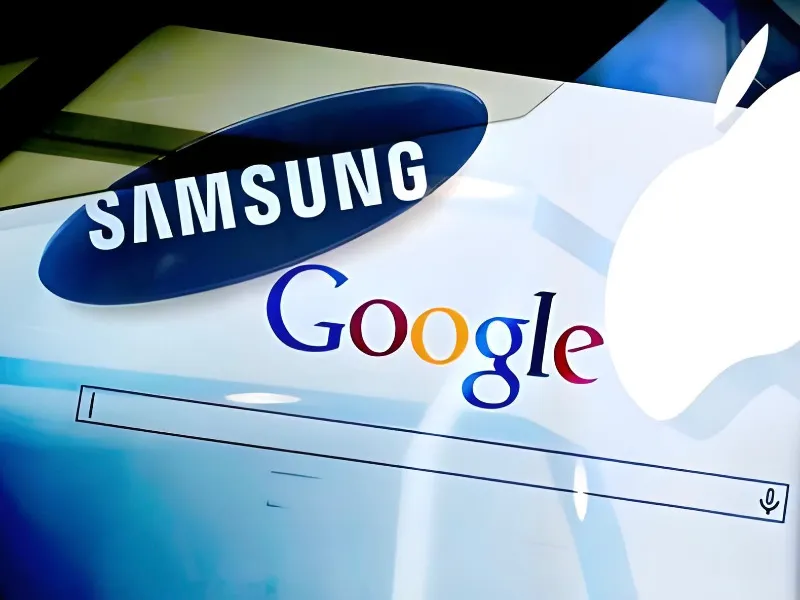- EU antitrust regulators have initiated an inquiry into whether the multi-year generative artificial intelligence (AI) agreement between Google and Samsung restricts competition among rival chatbots on Samsung smartphones.
- The European Commission’s investigation into the Google-Samsung chatbot deal is significant for several reasons. Firstly, it underscores the ongoing scrutiny that major tech companies face regarding their business practices and the potential for anti-competitive behavior. The Commission’s proactive approach in seeking industry feedback reflects its commitment to maintaining a competitive landscape in the rapidly evolving AI sector.
OUR TAKE
It’s like the EU’s antitrust cops are on a tech treasure hunt! Google and Samsung’s cozy AI deal is under the microscope now. Remember when Microsoft had to share Windows with other browsers? This feels like a similar showdown, but with AI chatbots. The Commission’s digging deep to see if Gemini Nano’s pre-install will choke out the competition. Companies better spill the beans on any roadblocks they faced. This could be a game-changer for AI diversity on Samsung phones.
–Miurio huang, BTW reporter
What happened
EU antitrust regulators have initiated an inquiry into whether the multi-year generative artificial intelligence (AI) agreement between Google and Samsung restricts competition among rival chatbots on Samsung smartphones.
The European Commission’s interest revolves around Samsung’s plan to embed Google’s Gemini Nano AI in its upcoming Galaxy S24 series smartphones. As part of its investigative process, the Commission has sent out requests for information to industry participants, aiming to understand whether this pre-installation could stifle competition. The regulators are specifically questioning if the integration of Gemini Nano limits the presence and functionality of other generative AI systems on Samsung devices.
A crucial part of the inquiry is a detailed eight-page questionnaire sent to various stakeholders. The questionnaire seeks to determine if the pre-installation of Gemini Nano either via the device or the cloud restricts the availability of alternative generative AI systems. Additionally, it asks whether this pre-installation could hamper the interoperability between Gemini Nano and other chatbots or applications pre-installed on Samsung smartphones.
Furthermore, the European Commission is interested in learning if companies have faced difficulties in securing agreements to pre-install their chatbots on Samsung devices and the reasons behind any such rejections. Respondents have been given a deadline this week to provide their insights and experiences, which will contribute to the Commission’s assessment of potential anti-competitive practices.
Also read: Gemini robot revolutionises office tasks at Google DeepMind
Also read: Google-based GitLab ‘s $8B future: Datadog eyes giant acquisition
Why it’s important
The European Commission’s investigation into the Google-Samsung chatbot deal is significant for several reasons. Firstly, it underscores the ongoing scrutiny that major tech companies face regarding their business practices and the potential for anti-competitive behavior. The Commission’s proactive approach in seeking industry feedback reflects its commitment to maintaining a competitive landscape in the rapidly evolving AI sector.
If the investigation finds that the deal indeed hinders competition, it could lead to regulatory actions against Google and Samsung. This would not only impact the two companies but also set a precedent for how similar deals are scrutinised in the future. Such regulatory actions could involve fines, mandates to alter business practices, or even demands to divest certain agreements, all of which could reshape the dynamics of the AI market.
The focus on the interoperability of AI systems is particularly crucial. In an era where AI technologies are becoming increasingly integrated into everyday devices, ensuring that multiple AI systems can coexist and function seamlessly is vital for innovation and consumer choice. If the pre-installation of Google’s Gemini Nano limits the functionality of other chatbots, it could reduce the diversity of AI applications available to users, potentially stifling innovation and limiting consumer options.
Moreover, this investigation highlights the importance of transparency and fairness in the tech industry. By probing whether companies have struggled to secure deals to pre-install their chatbots, the Commission aims to ensure that no single entity can monopolise the AI space on major platforms like Samsung smartphones. This approach promotes a more level playing field, encouraging competition and fostering a healthier ecosystem for technological advancements.
The EU’s inquiry into the Google-Samsung chatbot deal is a critical development in the regulation of AI technologies. The outcome of this investigation could have far-reaching implications for the industry, influencing how AI systems are integrated into consumer devices and ensuring that competition remains robust. As the deadline for responses approaches, the insights gathered will be pivotal in shaping the future of AI regulation and maintaining a fair competitive environment in the tech sector.

